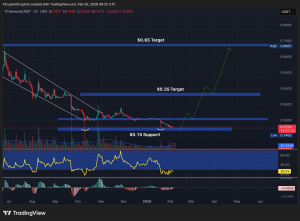
More than 500 Personal Independence Payment (PIP) ‘light touch’ reviews carried out by the Department for Work and Pensions (DWP) since August 2023 did not necessitate a health professional’s assessment, reveals a new Freedom of Information (FOI) release.
The DWP has confirmed an astounding 97 per cent of light touch reviews amounting to 508 out of 521 were finalised sans an assessment. In fact, only three such appraisals resulted in reduced PIP benefits two saw cuts while one entitlement was entirely disallowed.
These figures echo the DWPs previous statement that “most cases” seeing the close of a 10-year PIP award will escape face-to-face assessmentsan initiative following the lauded introduction of a streamlined PIP review form for recipients with a ‘light-touch’ award, lasting between five and ten years.
The DWP has also made accessible on GOV. UK a sample ‘PIP AR2’ form within the PIP Toolkit, furnishing a specimen for reference purposes only.
A vital resource, this offers beneficiaries insight into the questions posed over the six-page form, prepping them before they receive official correspondence from the DWP, thus giving time to compile any required specifics promptly, reports the Daily Record.
Ongoing awards are primarily for those with the highest level of support or whose needs will not change or will only deteriorate – since 2019, this also includes most people who have reached State Pension age.
The PIP review form is a six-page document that covers various sections.
Full list 16 questions on the PIP AR2 form
About you
- Q1 – Your name
- Q2 – Your date of birth
- Q3 – Your address
- Q4 – Is this a hospital, hospice or other residential or nursing care accommodation?
- Q5 – Your correspondence address
- Q6 – A phone number DWP can contact you on
- Q7 – Have there been any changes to your immigration status? – additional space is provided to write an answer
- Q8 – Tell DWP anything they need to know about how they communicate with you – additional space is provided to write an answer
About the main healthcare professional that supports you
The form explains that this may be your GP, hospital consultant or a specialist nurse and asks you to provide their details.
- Q9 – What is their name?
- Q10 – What is their job?
- Q11 – What is their phone number?
- Q12 – What is the address where they work?
About your health condition or disability
The form specifically allocates more space for responses to questions 13, 14, and 15, which focus on any changes in the claimant’s health condition, daily living needs, and mobility needs since the last Department for Work and Pensions (DWP) decision. It emphasises that “PIP is assessed on how your condition affects you, not the condition itself.”
Q13 – Have there been any changes in your health condition or disability since DWP last awarded you PIP?
Q14 – Have your daily living needs changed since DWP last made a decision on your PIP?
- The form states: “By daily living we mean preparing food and cooking, eating and drinking, managing treatments and taking medication, washing and bathing, managing toilet needs, dressing and undressing, communicating, reading, mixing with other people and managing money.”
Q15 – Have your mobility needs changed since DWP last made a decision on your PIP?
- The form states: “By mobility we mean getting around and planning and following a journey.”
Consent for DWP to collect further information
Q16 – Do you give consent for your doctor or other relevant professionals to give DWP more information about your health condition or disability?
The final question, number 16, seeks consent from the claimant for the DWP to collect additional information from doctors or other relevant professionals regarding the impact of the health condition or disability on the claimant’s life.
The form details: “The Department for Work and Pensions (DWP) or approved healthcare professionals that work for DWP, might need more information about your health condition or disability and how it affects you.”
They might ask, with your consent, for relevant information from your doctor, or any other relevant professional you tell them about.
“DWP can lawfully ask your doctor, hospital consultant or other relevant professionals for information about your health condition and how it affects you. This is because we are asking for the information to help us carry out our official social security functions.”
It continues: “You do not have to give your consent. If you do not, DWP will make a decision based on the information they have already, as well as any you give DWP yourself.”
The document concludes with a declaration for the claimant to sign and date.
The PIP review process
Regarding the PIP review process (DWP), the guidance clarifies that claimants will continue to receive PIP while their claim is under review. They will be sent the form accompanied by a covering letter.
The letter from DWP will include:
- Confirm that you have a long-term health condition/disability or that you are over State Pension age
- Confirm your current awards for daily living and/or mobility
- Set out the needs or difficulties that you have been assessed under for daily living and/or mobility for your current award
- Explain the reason for the review
- Give clear instructions about what you need to do next
- Explain what to do if you have problems completing the form
- Explain what the DWP will do once they receive the form
As standard with review forms, there’s a deadline for submission – typically one month, indicated on both the letter and the review form. Should you require additional time to fill it out, it’s advised to contact the PIP enquiry line at 0800 121 4433 promptly.



















